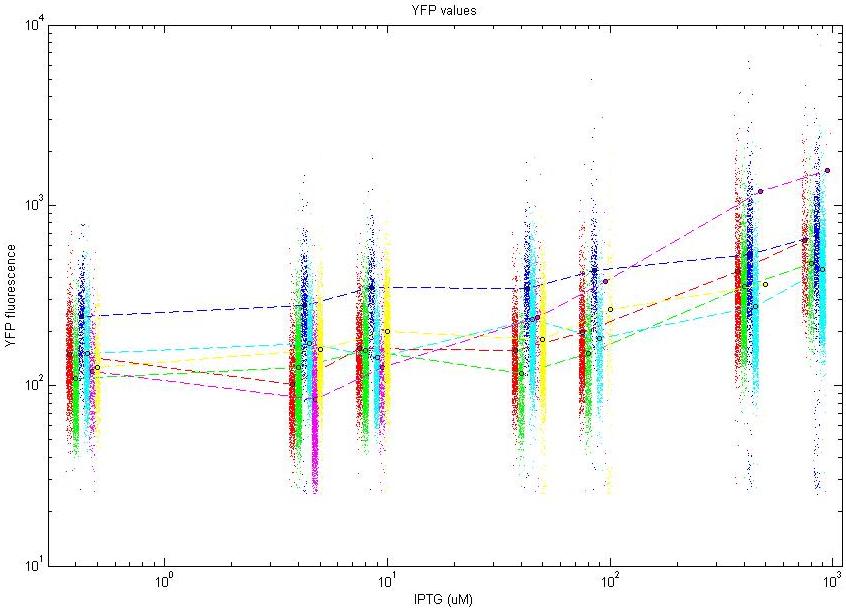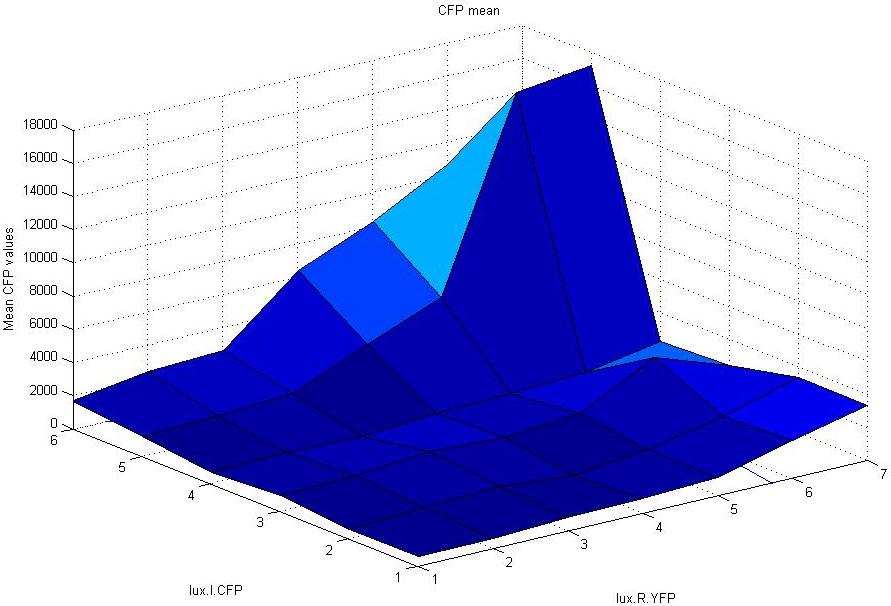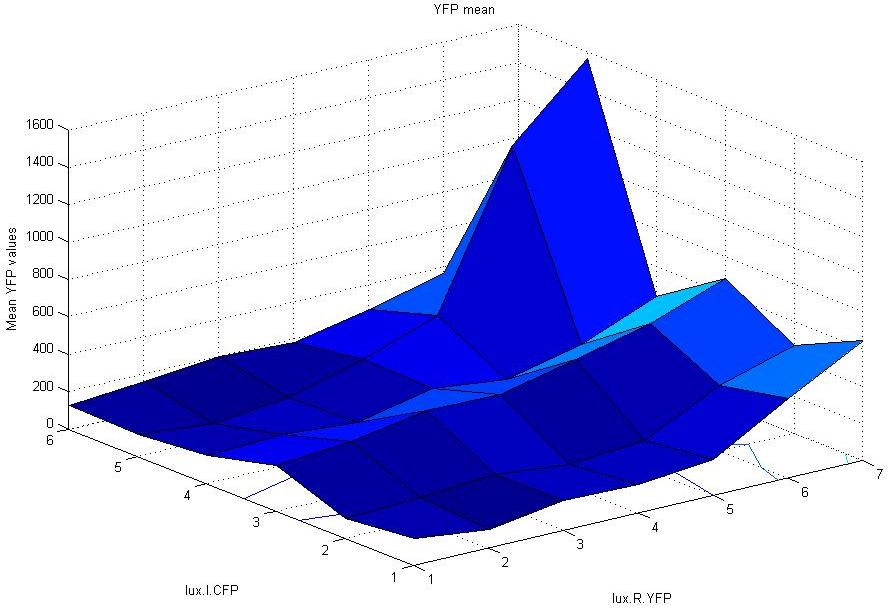July 6
From 2007.igem.org
(Difference between revisions)
(→Analysis) |
(→Analysis) |
||
| Line 186: | Line 186: | ||
| - | {|align="center" width="80% | + | {|align="center" width="80%" |
!align="center"|CFP Fluorescence | !align="center"|CFP Fluorescence | ||
!align="center"|YFP Fluorescence | !align="center"|YFP Fluorescence | ||
| Line 196: | Line 196: | ||
|align="center"|[[Image:surf_plot_yfp_jul6.jpg|400px|YFP fluorescence]] | |align="center"|[[Image:surf_plot_yfp_jul6.jpg|400px|YFP fluorescence]] | ||
|- | |- | ||
| - | |colspan="2" align="justify"|The increasing values along the luxI.CFP axis are the increasing concentrations of aTc whereas the increasing values along the luxR.YFP axis are the increasing concentrations of IPTG. | + | |colspan="2" align="justify"| |
| + | The increasing values along the luxI.CFP axis are the increasing concentrations of aTc whereas the increasing values along the luxR.YFP axis are the increasing concentrations of IPTG. | ||
|} | |} | ||
Revision as of 06:31, 7 July 2007
Back to Bangalore
Back to e-Notebook
Experiments
Analysis
Today we compiled the data collected from all our open-loop experiments performed at various concentrations of aTc (ng/ml). The following matrix of information was obtained:
|
CFP mean values |
IPTG (uM) or luxR.YFP | |||||||
|---|---|---|---|---|---|---|---|---|
| 0 | 5 | 10 | 50 | 100 | 500 | 1000 | ||
|
aTc (ng/ml) or luxI.CFP | 0 | |||||||
| 1 | ||||||||
| 5 | ||||||||
| 10 | ||||||||
| 20 | ||||||||
| 50 | ||||||||
|
YFP mean values |
IPTG (uM) or luxR.YFP | |||||||
|---|---|---|---|---|---|---|---|---|
| 0 | 5 | 10 | 50 | 100 | 500 | 1000 | ||
|
aTc (ng/ml) or luxI.CFP | 0 | |||||||
| 1 | ||||||||
| 5 | ||||||||
| 10 | ||||||||
| 20 | ||||||||
| 50 | ||||||||
| These values, obtained from the microscopy experiments, give us a clear idea of the equivalence between luxI.CFP and luxI.YFP.
A scatter plot with each dot representing a cell was also plotted to see the variation of fluorescence with the change in aTc and IPTG concentrations.
|



